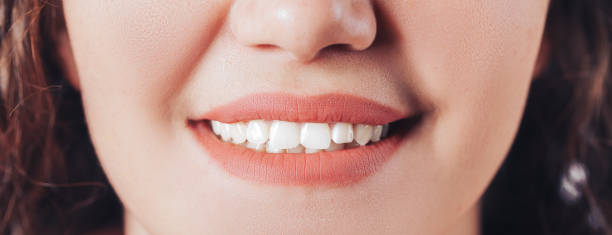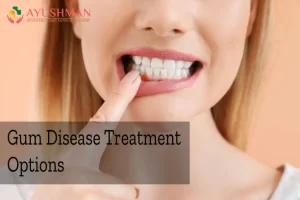How to whiten your teeth naturally

How to whiten your teeth naturally
A dazzling smile is often associated with good oral health and confidence. While professional teeth whitening treatments are available, there are also several natural and cost-effective home remedies to brighten your teeth. Incorporating these into your routine can help achieve a radiant smile without the use of harsh chemicals. Here are some effective natural ways to teeth whitening and enhance your smile:
Oil Pulling:
Start your day by swishing a tablespoon of coconut oil in your mouth for about 15 minutes. This ancient practice is known as oil pulling. It removes bacteria and stains from our teeth and promotes a brighter smile.
Baking Soda:
Create a gentle toothpaste by mixing baking soda with water to form a paste. Brush your teeth with this mixture a couple of times a week. Baking soda is mildly abrasive and helps in the removal of surface stains.
Activate Charcoal:
This remedy has gained popularity as a natural teeth-whitening agent. Use it sparingly, apply a small amount to your toothbrush and brush gently. Be careful not to use it too frequently, as overuse can destroy tooth enamel.
Strawberries and Baking Soda Paste:
Combine mashed strawberries with a pinch of baking soda to create a paste. Apply the mixture to your teeth and let it sit for a few minutes before rinsing. Strawberries contain malic acid which helps whiten teeth.
Apple Cider Vinegar Rinse:
Dissolve apple cider vinegar in water and use it as a mouthwash for a few seconds. Be careful with this method, as the acidity of vinegar can erode tooth enamel. Use it sparingly and rinse your mouth thoroughly with water afterward.
Hydrogen Peroxide:
Gargle with a diluted hydrogen peroxide solution for 30 seconds. It’s essential to use a safe concentration, typically around 1.5% or 3%. Rinse your mouth thoroughly with water afterward.
Eat Crunchy Vegetables and Fruits:
Crunchy vegetables and fruits like celery, apples, and carrots act as natural toothbrushes. They remove surface stains. Additionally, these foods stimulate saliva production which helps in maintaining a clean mouth.
Dairy Products:
Include dairy products like yogurt, cheese, and milk into your diet. The lactic acid and calcium in these foods can contribute to strengthening tooth enamel and promoting a brighter smile.
Maintain Good Oral Hygiene:
Regular brushing, flossing, and using an antiseptic mouthwash are fundamental to preventing stains and maintaining oral health. Consistent oral hygiene practices play a crucial role in achieving and preserving a whiter smile.
While these home remedies can contribute to a brighter smile, it’s crucial to remember that results may vary, and maintaining overall oral hygiene is key. If you have concerns or persistent discoloration, consult with a dentist for professional advice tailored to your specific needs.
Incorporating these natural remedies into your routine can be a step towards achieving a whiter smile without resorting to chemical-laden products. Experiment with these methods, but always prioritize oral health and consult a professional for personalized guidance.
When To Visit A Doctor
It’s advisable to visit a doctor when you experience persistent or severe symptoms, sudden changes in your health, or if you have concerns about your well-being. Regular check-ups are also important for preventive care and early detection of potential health issues. If you’re unsure about when to seek medical advice, it’s always better to consult with a healthcare professional for personalized guidance based on your specific situation.
FAQs
Q: How often should I use these home remedies for teeth whitening?
A: The frequency depends on the remedy. Generally, 2-3 times a week is recommended to avoid potential side effects like enamel erosion or tooth sensitivity.
Q: Are there any side effects associated with these natural remedies?
A: While these remedies are generally safe, overuse can lead to issues. For example, the acidity in lemon and vinegar may harm enamel. It’s crucial to follow instructions and consult a dentist if you experience any adverse effects.
Q: Can I combine multiple remedies for better results?
A: Combining certain remedies may enhance their effects, but be cautious. Using too many at once or too frequently can be counterproductive and may harm your oral health. Moderation is key.
Q: How long does it take to see results?
A: Results vary based on factors like individual tooth stains and consistency of use. Some may see improvements in a few weeks, while others may take longer. Patience and regular application are essential.
Q: Can these remedies replace professional teeth whitening treatments?
A: Home remedies can contribute to a brighter smile, but they might not provide the same dramatic results as professional treatments. Consult with a dentist to discuss your goals and explore suitable options.
Q: Are these remedies safe for everyone, including those with sensitive teeth?
A: Individuals with sensitive teeth should exercise caution, especially with acidic remedies. Consult your dentist before trying these remedies, and they can recommend alternatives or adjustments based on your dental condition.
Q: Are there specific foods or habits I should avoid to maintain teeth whiteness?
A: Yes, limiting foods and beverages that stain teeth (like coffee, tea, and red wine) can help. Also, avoid tobacco, which can contribute to teeth discoloration. Regular oral hygiene practices are crucial for maintaining results.
Q: If I have concerns about my oral health, when should I consult a dentist?
A: Any persistent or unusual symptoms, sudden changes, or discomfort in your oral health warrant a visit to the dentist. Regular check-ups every six months are also essential for preventive care and early detection of potential issues.









